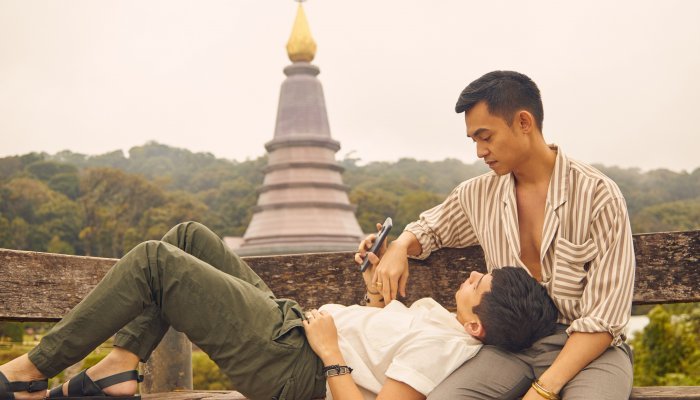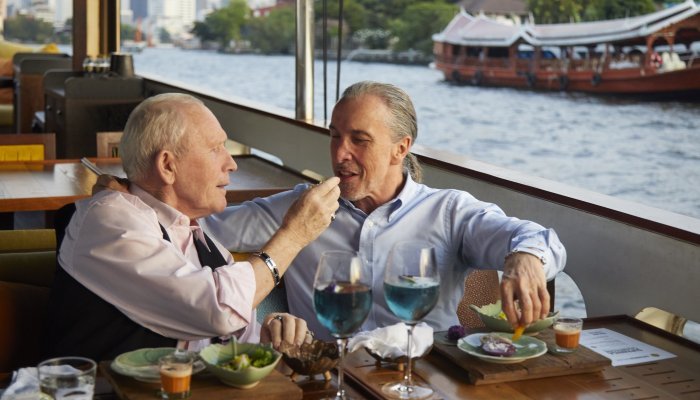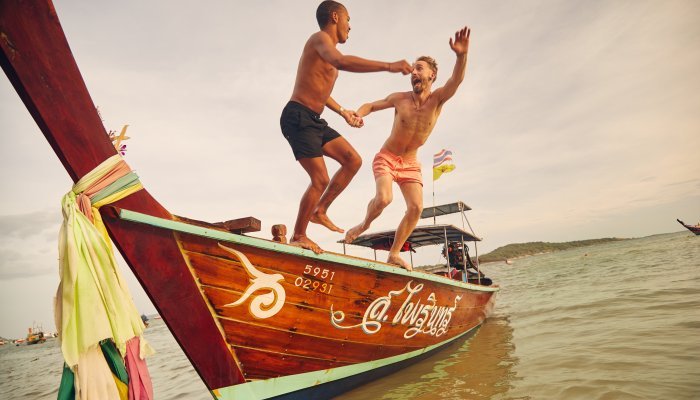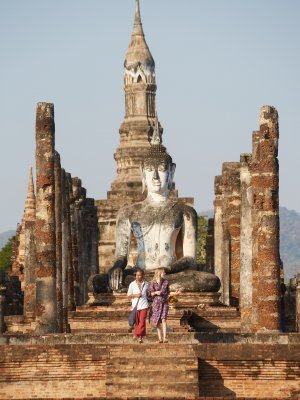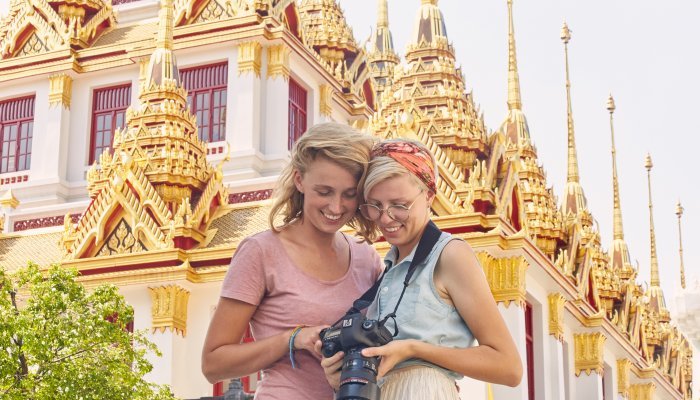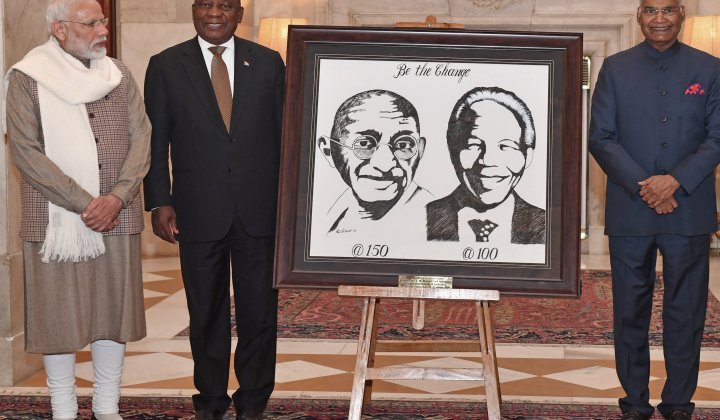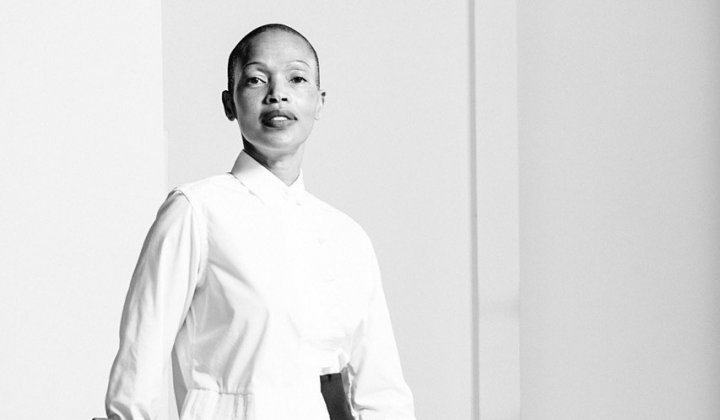“LGBT+ people, while accounting for just 7-10% of any given population, account for between 10% and 16% of the tourism value,” says Uwern Jong, editor-in-chief of OutThere, a leading luxury and experiential travel magazine for gay men. “And hearsay from the industry supports this. Hotel managers, sales and marketing people, and travel advisors alike, will tell you that, on average, an LGBT+ booking is more valuable than a mainstream one. This just proves why targeting the LGBT+ market is an absolute no-brainer.”
Respect your guests
While it’s easy to talk about the LGBT+ community as one segment, it’s broken down into different demographics in terms of gender, age, geography, socioeconomics, and more. That’s why travel brands cannot apply a one-size-fits-all model in their outreach.
“OutThere found a strong desire of our readers wanting to redefine the concept of luxury travel,” Jong says. “They agree that transformative travel is something they want – travel experiences that change their perceptions of the world.”
This was the finding from a sample of 800 respondents in Canada, the US and the UK. Because the magazine’s readers tend to be mature men interested in luxury travel, Jong admits that younger, female, and more mainstream travellers might have other passion points. Still, the findings provide a good indication of LGBT+ travel motivations.
“LGBT+ preferences aren’t that dissimilar from mainstream interests, but with a greater emphasis on the more cultural and experiential elements,” Jong says. “LGBT+ people primarily holiday to discover new experiences, expand their horizons, and escape their usual lives. But the not-so-big secret is that LGBT+ people are looking for the same things that straight people are looking for. We want to be treated with respect – acknowledging that our culture isn’t something completely alien – and, like everyone else, have a great holiday.”
Have clear non-discrimination policies
Travel brands worried about how to reach the elusive LGBT+ market can take comfort in the fact that doing so isn’t as hard as they might think. Indeed, Jong points out that LGBT+ people are heavy consumers of digital and social media (though this behaviour is dependent on age) even while there’s still a reliance on print magazines, word of mouth, and events.
What you do is more important than what you say...
“There are stark differences across the different markets in the way that LGBT+ people purchase travel,” Jong says. “Europeans and those in emerging markets are largely digital and book online or with travel agents, but in North America there’s still a strong reliance on the travel trade.”
After reaching the LGBT+ market, the next step is to serve them. Again, Jong is often asked what makes an LGBT+ friendly hotel. While there are many factors to consider, the most important is that what you do is more important than what you say.
“LGBT+ people can cut through the bullshit,” he says. “They know the difference between a property that says it’s gay-friendly and one that’s actually gay-friendly. So, at the top of the list is a clear non-discrimination policy. Does your brand make it clear to the public and with their staff that they do not tolerate discrimination on the grounds of sexual orientation of any form?”
Another key aspect is about marketing. “Identity is important to the LGBT+ traveller,” Jong says. “They want to know that hotels and other travel brands truly understand what being part of the community is, instead of just being on the outside looking in. They also want to know if you’re creating a guest experience that truly sparks joy, as Marie Kondo would say.”
LGBT+ preferences aren’t that dissimilar from mainstream interests...
Become a destination of choice
One country succeeding in this area (and one South Africa could learn a lot from) is Thailand. Because the country indexes high on all the things that people want – food, culture, nature, events – Jong believes it’s well-positioned to achieve significant return on investment from engaging with the LGBT+ traveller.
“My personal history with Thailand goes way back,” he says. “And although my roots are just over the border in Malaysia, my heart will forever be in Thailand. The ongoing effort to welcome travellers to this magical country, no matter where they’re from or who they love, is truly amazing. And no one does luxury hospitality like the Thais!”
Jong began collaborating with the Tourism Authority of Thailand a decade ago and, together with its New York office, created a special Thailand issue of OutThere magazine. It’s been “a whirlwind ever since”.
“I’ve become an LGBT+ brand ambassador of sorts, working on many exciting initiatives like the LGBT Symposium and helping the Tourism Authority of Thailand welcome LGBT+ guests from all over the world,” he says. “This couldn’t happen in my native and conservative Malaysia. And even in the region, in countries like Brunei and Indonesia, the world gets smaller for LGBT+ people. But here in Thailand, the ever-welcoming and diverse spirit and people make it a real destination of choice for the LGBT+ community.”
When he’s not travelling around Thailand, Jong’s love of the country continues. He often talks about his experiences around the world. He also encourages other destinations to learn from Thailand’s example by constantly inspiring LGBT+ people to visit. Either that or lose out big time.
“There’s an argument I often hear that Thailand doesn’t need to market to LGBT+ people, especially in South Korea or Japan, because they come anyway,” he says. “But we’re operating in a competitive tourism market. And if destinations don’t continue to innovate and develop creative products, LGBT+ travellers will go elsewhere.”
www.thailand.lgbttravelsymposium.com
LGBT+ travel trends
What are the key LGBT+ travel trends that destinations and travel brands can integrate into their marketing plans for 2020 beyond? Uwern Jong shares his top five:
Romantic travel: As the world continues to open up to marriage equality, destination weddings and honeymoons remain high on the agenda. Recent research revealed that 2020 is going to be quite a year for LGBT+ weddings. With everything going on in the world, particularly with growing nationalism in the US and Brexit in the UK, LGBT+ people who have been on the fence about getting married are rushing to do so, just in case anything changes and impacts mixed nationality partners. So, if you haven’t got same-sex wedding or honeymoon products, now’s the time to consider it.
Female travel: Women, both cisgender and transgender, are often the silent L and T in the LGBT+ market. But this is a strong demographic rising in affluence and desire to travel, especially in the luxury space, with specific needs based around safety. Dealing with objections from more conservative guests can also be a challenge so it’s important to ensure the right training for mutual understanding. Suppliers also need to be sensitive to their needs and ensure that everyone feels welcome and has a great time travelling.
Family travel: More and more LGBT+ couples are having children and face many challenges when they travel, from overzealous hotel staff asking where mommy or daddy is when they don’t see a person of the opposite sex checking in with the children, or greeting two fathers by saying that it’s so nice of them to take the kids to give their wives a break. Showing that you understand the sensitivities around gender dynamics or relationships will help you in this segment. The hotels that succeed are those that provide sensitivity training and education on LGBT+ needs and wants.
Elderly travel: There’s a huge demographic of senior travellers but they have different needs and wants. They also require a much higher level of sensitivity, especially for those who only came out of the closet later in life and are looking to make up for lost time but can’t openly express what they’re looking for. They know they’re LGBT+ but don’t necessarily understand the culture. Some even have children and families from their previous lives. But their desire to engage with and find a fellowship in the LGBT+ community is much higher than those who have been out all their lives.
Group travel: LGBT+ people love group travel, especially at milestone celebrations. And because LGBT+ people consider our friends and our allies the same as close family, we make it count when we celebrate and travel together. For example, for my 14th birthday, 15 friends and I came to Thailand to celebrate. So, consider milestones, birthdays, retirements, anniversaries, and buddymoons (that’s a honeymoon where you take friends with you) as potential ideas for your communications.
Case Study: Go Thai. Be Free.
Thailand believes that diversity is amazing. As the most LGBT+ welcoming country in Asia, the kingdom is proud that all people, no matter how they identify or who they love, feel free when traveling in Thailand. This was the inspiration for a new campaign featuring inspiring stories and destinations promoting LGBT+ tourism.
“The direct contribution of LGBT+ tourism to the GDP of Thailand was estimated at US$5.3 billion in 2018, at just 50% of its realisable potential,” Jong says. “Meanwhile, arrivals by LGBT+ tourists to Thailand are estimated at 3.8 million in 2018, with an expectation of 2% growth in 2019, in line with the mainstream.”
The global growth in LGBT+ travel is estimated at 6%. And while Thailand is doing great, Jong believes that with some improvements and support from the private sector, the country can harness the economic power of the LGBT+ community.
“The contribution of LGBT+ tourism represents only 3% of Thailand’s entire tourism earnings, compared to between 10% and 16% for other destinations welcoming the LGBT+ community, despite it being known as Asia’s most gay-welcoming destination,” Jong says. “This demonstrates a real opportunity to maximise potential.”
.. learn from Thailand’s example by constantly inspiring LGBT+ people to visit...
Disclosure
Eugene Yiga travelled to the LGBT+ Symposium in Bangkok as a guest of the Tourism Authority of Thailand. For more information, contact Lesley Simpson Communications, the Johannesburg representative, on 011 463 8195, or email at nick@lscpr.co.za and they will recommend a list of local tour operators to assist you with your tailor-made package.
· Facebook: https://www.facebook.com/amazingthailandinsouthafrica/
· Twitter: https://twitter.com/thailandsa
· Instagram: https://www.instagram.com/amazingthailandsouthafrica/
· Hashtags: #AmazingThailandSouthAfrica #TravelThailand #TravelAsia


